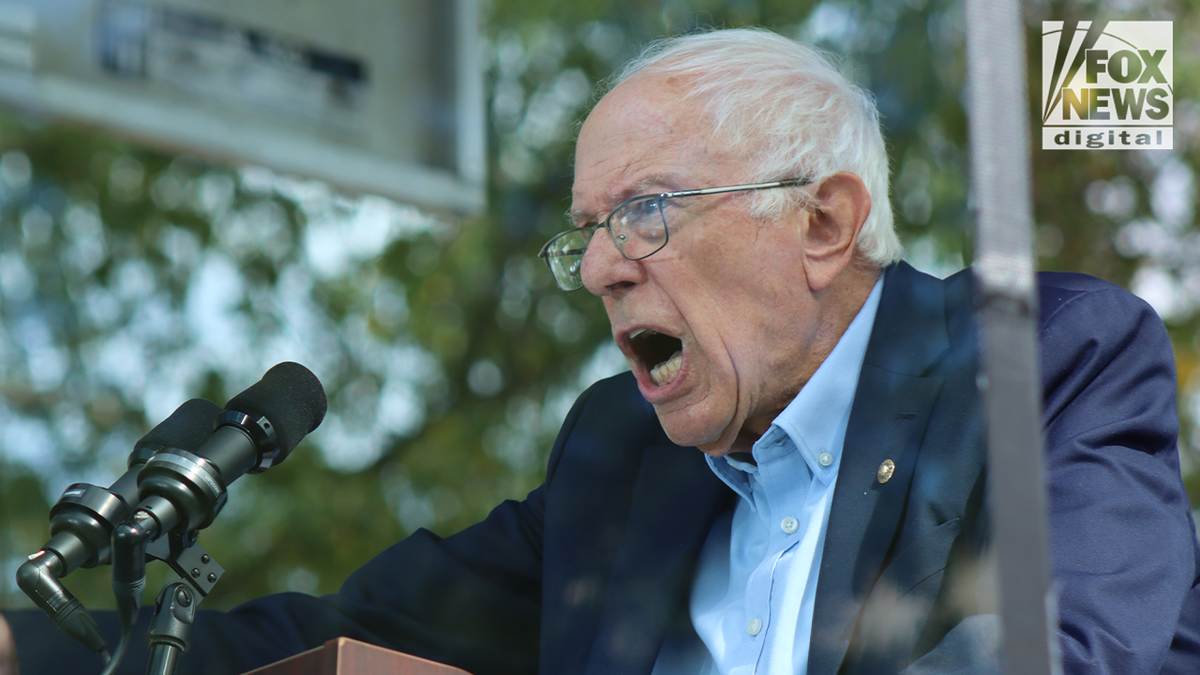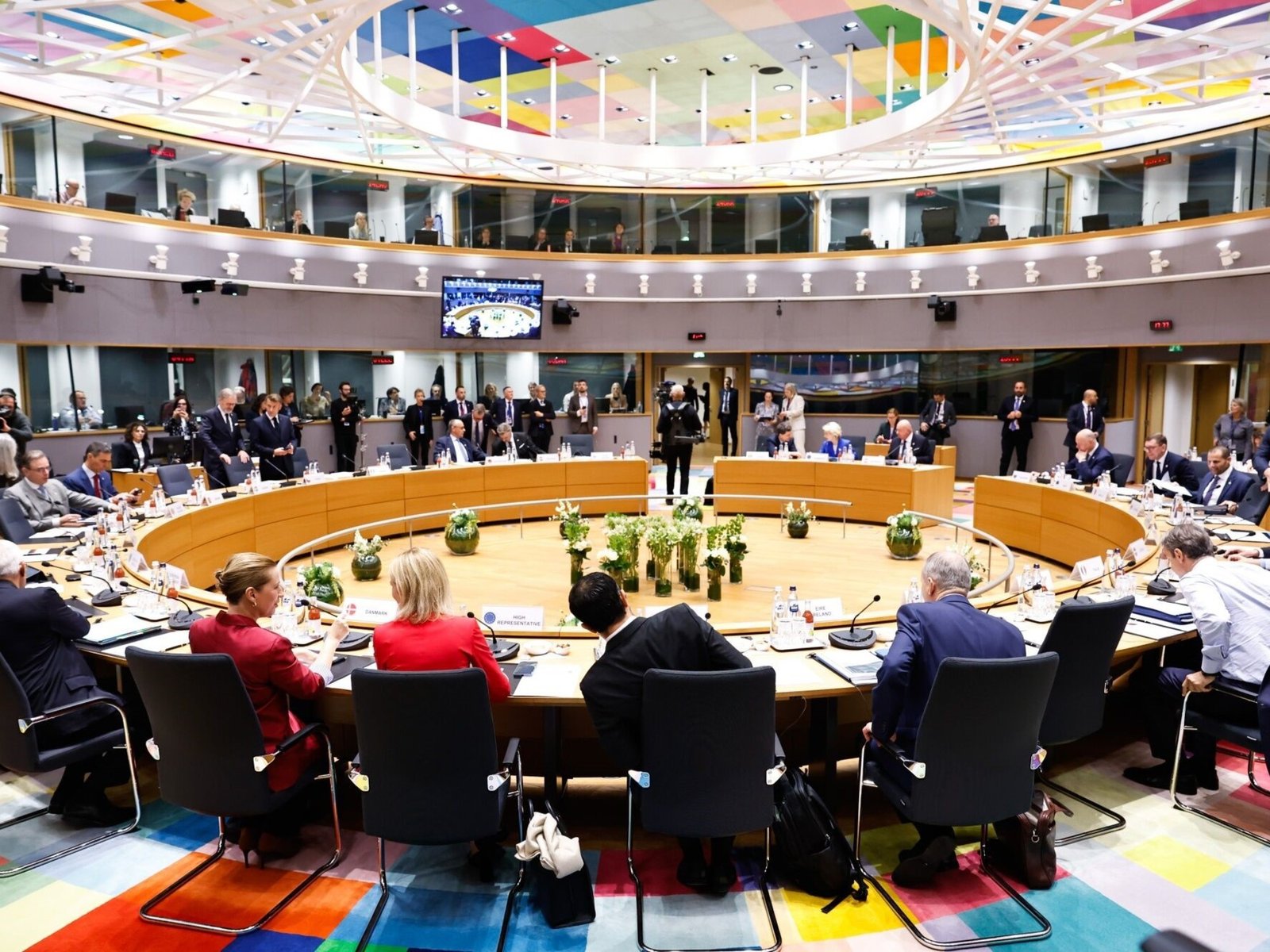INTERNACIONAL
Hostage families blast UK and France for moves to recognize Palestinian state

NEWYou can now listen to Fox News articles!
Families of hostages held in Gaza, along with a freed captive, are blasting Britain, France and other nations for deciding to recognize a Palestinian state, warning that these steps reward Hamas terrorists while dozens of hostages remain trapped underground.
The backlash came after British Prime Minister Keir Starmer announced Tuesday that his government will formally recognize a Palestinian state at the United Nations General Assembly in September unless Israel agrees to a ceasefire, allows U.N. aid and commits to a two‑state solution.
Emily Damari, a dual British‑Israeli citizen who survived Hamas captivity, posted on X, «As a Dual British-Israeli citizen who survived 471 days in Hamas captivity, I am deeply saddened by your decision Keir Starmer to recognize Palestinian statehood. This move does not advance peace—it risks rewarding terror. It sends a dangerous message: that violence earns legitimacy.
STARMER SAYS UK TO RECOGNIZE PALESTINIAN STATE IF ISRAEL DOESN’T AGREE TO CEASEFIRE, HAMAS MUST ‘DISARM’
Emily Damari, right, and her mother Mandy are seen near kibbutz Reim, southern Israel after Emily was released from captivity by Hamas terrorists in Gaza, on Sunday, Jan. 19. (AP/Israeli Army)
«By legitimizing a state entity while Hamas still controls Gaza and continues its campaign of terror, you are not promoting a solution; you are prolonging the conflict. Recognition under these conditions emboldens extremists and undermines any hope for genuine peace. Shame on you,» Damari wrote.
The Hostages and Missing Families Forum, representing relatives of people still held in Gaza, also slammed the announcements.
«Recently, we’ve seen an increase in initiatives calling for unilateral recognition of a Palestinian state – all while 50 hostages have been held captive by Hamas for 663 days. Recognizing a Palestinian state while 50 hostages remain trapped in Hamas tunnels amounts to rewarding terrorism. Such recognition is not a step toward peace, but rather a clear violation of international law and a dangerous moral and political failure that legitimizes horrific war crimes.

Hamas terrorists stand in formation as Palestinians gather on a street to watch the handover of three Israeli hostages to a Red Cross team in Deir el-Balah, central Gaza, on February 8, 2025 (Majdi Fathi/NurPhoto via Getty Images)
«The abduction of men, women, and children, who are being held against their will in tunnels while subjected to starvation and physical and psychological abuse, cannot and should not serve as the foundation for establishing a state. If the international community truly desires peace, it must join U.S. efforts by demanding first the release of all hostages, followed by an end to the fighting.»
FROM GAZA TO GREENLAND, MACRON BREAKS WITH TRUMP ON GLOBAL FLASHPOINTS
On Tuesday, Starmer announced his intentions. «I can confirm that the U.K. will recognize the State of Palestine by the United Nations General Assembly (UNGA) in September, unless the Israeli government take substantive steps to end the appalling situation in Gaza, agree to a ceasefire and commit to a long-term sustainable peace, reviving the prospect of a two-state solution.»

Relatives and supporters of Israeli hostages held captive in the Gaza Strip since the October 7 attack in southern Israel, hold their portraits during a protest at Hostages Square in Tel Aviv on May 28, 2025, to mark 600 days of their captivity and demand their release and ending the war. (AHMAD GHARABLI/AFP via Getty Images)
France announced a similar step last week. After those statements, ten more countries said they intend to follow: Malta confirmed it will, and Andorra, Australia, Canada, Finland, Iceland, Luxembourg, New Zealand, Portugal and San Marino declared plans to move in that direction. Spain, Ireland, Norway and Belgium have also expressed support. The Netherlands, once considered one of Israel’s closest allies, has hardened its stance, threatening to remove Israel from an EU research program and barring Israeli ministers from entry.
Speaking aboard Air Force One after meeting Starmer in Scotland, President Donald Trump didn’t back the plan. «Essentially, they (the U.K. and France) are saying the same thing, and that’s OK. But you know it doesn’t mean I have to agree,» he told reporters.

French President Emmanuel Macron welcomes British Prime Minister Keir Starmer (L) during a meeting on the situation in Ukraine and security issues in Europe at the Elysée Palace on Feb. 17, 2025 in Paris, France. (Tom Nicholson/Getty Images)
CLICK HERE TO GET THE FOX NEWS APP
Veteran U.S. diplomat Dennis Ross also weighed in on X, warning that recognition without clear benchmarks could backfire, posting «Recognizing a Palestinian state without conditions will perpetuate the conflict not end it. What conditions? Leaders credibly committed to coexistence/non-violence, no independent militias, no alliances with rejectionists, recognition of the historic Jewish ties to the land.»
israel,united kingdom,france,terrorism
INTERNACIONAL
Dems silent on progressive candidate’s Nazi-style tattoo after knocking Hegseth for Christian symbol

NEWYou can now listen to Fox News articles!
Prominent Democrats who were highly critical of Secretary of War Pete Hegseth’s tattoos with crusader symbolism are now keeping silent on a progressive Senate candidate who had a Nazi-style symbol tattooed to his chest.
Sen. Elizabeth Warren, D-Mass., and Sen. Tammy Duckworth, D-Ill., criticized Hegseth for his tattoos, one of which is a Jerusalem cross and another with the Latin phrase «Deus Vult» (God wills it), both of which are associated with the crusades and ancient Christian symbolism.
Following their comments against Hegseth, Fox News Digital reached out to Warren and Duckworth for comment on the ongoing controversy over Maine Senate Democratic candidate Graham Platner having a «Totenkopf,» Nazi «death’s head» symbol tattooed to his chest.
Warren has previously expressed enthusiasm for Platner’s candidacy, telling Politico, «I’m excited to see new people enter the race for the Senate … particularly those who have a strong voice they’re willing to use on behalf of people who are often ignored in the U.S. Senate.»
ARE PETE HEGSETH’S TATTOOS SYMBOLS OF ‘CHRISTIAN NATIONALISM’?
Sen. Elizabeth Warren, D-Mass., left, and Sen. Tammy Duckworth, D-Ill., right, kept silent on progressive Senate candidate Graham Platner’s controversial tattoo. (Ben Margot/AP Photo; WGME via AP; Anna Moneymaker/Getty Images)
Fox News Digital asked whether Warren and Duckworth condemn Platner because of the tattoo and whether they believe he should drop out of the race. Neither immediately responded to Fox News Digital’s request for comment.
During Hegseth’s confirmation hearings, Warren sent him an extensive letter, in which, among other issues, she expressed concern about his «Deus Vult» tattoo.
«You were also removed from President Biden’s inauguration because of concerns that you were an insider threat after reports that your ‘Deus Vult’ tattoo ‘was a Christian expression associated with right-wing extremism,’» Warren wrote. «We cannot have a Defense Secretary whose fellow servicemembers feel concerned enough about to report as a potential insider threat.»
Democrats have continued to give Hegseth a hard time over the tattoos. During a hearing in June, Duckworth accused Hegseth of «blowing through money like my fellow cadets and I did in our first liberty after basic camp. Luckily, I didn’t end up with a questionable tattoo.»
‘MAINE’S MAMDANI’: MAINE GOP CHIEF ISSUES WARNING ABOUT NEW CHALLENGER LOOKING TO OUST SUSAN COLLINS

U.S. Secretary of War Pete Hegseth speaks to senior military leaders at Marine Corps Base Quantico, Va., Sept. 30, 2025. (Andrew Harnik/Pool via Reuters)
Platner, a Marine veteran and progressive endorsed by the likes of Sen. Bernie Sanders, I-Vt., has garnered widespread criticism over a skull-and-crossbones tattoo on his chest that strongly resembles the Totenkopf symbol used by Hitler’s SS forces.
After the controversy erupted, Platner said he got the tattoo in 2007 during a «night of drinking» while on leave in Croatia in the Marine Corps and claimed he did not know its historical associations at the time. He has since covered the image with another tattoo of dogs.
In a video posted to Instagram Wednesday afternoon, Platner elaborated that the design was chosen from a flash tattoo wall while «carousing» with fellow Marines in Split, Croatia.
«We thought it looked cool,» he said.
MAINE DEM SENATE HOPEFUL BACKED BY BERNIE SANDERS APOLOGIZES FOR NAZI-STYLE TATTOO, VOWS TO STAY IN RACE

Sen. Bernie Sanders speaks at a «No Kings» rally in Washington, D.C., Oct. 18. (Fox News Digital/Emma Woodhead)
He claimed he had «lived a life dedicated to anti-fascism, anti-racism and anti-Nazism» and was «appalled» to learn it resembled a hate symbol.
A spokesperson for Sanders shared an Axios interview with the senator in which he said, «I’m not overly impressed by a squad of media running around saying, ‘What do you think about the tattoo on Graham Platner’s chest’» and «between you and me there might be one or two more important issues.»
CLICK HERE TO DOWNLOAD THE FOX NEWS APP
The spokesperson also shared another statement from Sanders in which he said of Platner, «I personally think he is an excellent candidate. I’m going to support him, and I look forward to him becoming the next senator in the state of Maine»
Fox News Digital also reached out to Sanders and Platner’s campaign for comment but did not immediately receive a response.
Fox News Digital’s Jasmine Baehr contributed to this report.
2025 2026 elections coverage,democratic party,pete hegseth
INTERNACIONAL
Dos aviones militares rusos violaron el espacio aéreo de Lituania y provocaron un operativo de la OTAN

Dos aviones de combate de Rusia penetraron en el espacio aéreo de Lituania, país miembro de la OTAN, este jueves alrededor de las 18:00 hora local (15:00 GMT). Según información confirmada por el ejército lituano, los aparatos, un caza Su-30 y un avión cisterna Il-78, cruzaron desde la región de Kaliningrado y recorrieron unos 700 metros en territorio lituano. La irrupción duró aproximadamente 18 segundos.
Las fuerzas armadas lituanas explicaron que las aeronaves realizaban, probablemente, maniobras de entrenamiento de reabastecimiento cuando traspasaron la frontera estatal cerca de Kybartai, al suroeste del país. Tras la detección del incidente por radar, Vilna activó los protocolos de seguridad e informó a sus aliados de la OTAN, la Unión Europea (UE) y al Consejo del Atlántico Norte.
En respuesta inmediata, dos cazas Eurofighter Typhoon españoles, desplegados en la base aérea de Siauliai como parte de la misión de Policía Aérea del Báltico y la operación ‘Centinela Oriental’, despegaron y patrullaron la zona. Un portavoz de la OTAN afirmó que la intervención de los cazas españoles demuestra “la disposición de la OTAN para responder ante cualquier acontecimiento” y su capacidad para garantizar la integridad aérea de sus miembros.
La invasión temporal del espacio aéreo fue calificada como “una severa violación del Derecho Internacional y la soberanía territorial” por el presidente Gitanas Nauseda. En un video difundido en la red social X, el mandatario subrayó que los hechos confirman “la importancia de fortalecer la preparación de la defensa aérea europea”. Además, anunció que Lituania convocaría a representantes de la embajada rusa en Vilna para protestar formalmente contra lo que describió como un “comportamiento imprudente y peligroso”.
Por su parte, la primera ministra Inga Ruginiene declaró en Facebook que “este incidente demuestra una vez más que Rusia se comporta como un Estado terrorista, despreciando el Derecho internacional y la seguridad de los países vecinos”.
“Lituania es segura. Junto con nuestros aliados, cuidamos y defenderemos cada centímetro de nuestro país”, añadió la premier e insistió en que la “situación está completamente bajo control”. Ruginiene también elogió la rápida y coordinada acción de los cazas españoles implicados.
El Ministerio de Defensa ruso negó la incursión.
“Los vuelos se realizaron en estricto cumplimiento de las normas de uso del espacio aéreo sobre territorio ruso. Las aeronaves no se desviaron de su ruta ni violaron las fronteras de otros estados”, declaró en Telegram.
El incidente elevó las tensiones en la zona, en un contexto regional ya sensible por las continuas provocaciones rusas. Según el ministro polaco de Defensa, Wladyslaw Kosiniak-Kamysz, entrevistado por la cadena TVN24, “esto demuestra que la vigilancia es necesaria en todo momento, que Rusia no se está calmando ni retrocediendo”.
Este no es un hecho aislado en la región. El pasado 19 de septiembre, tres aviones militares rusos violaron el espacio aéreo de Estonia durante 12 minutos. La OTAN envió entonces cazas para escoltar a los aparatos hasta su salida. En ese caso, Rusia negó la incursión y acusó a Tallin de carecer de pruebas y de buscar aumentar la tensión entre Oriente y Occidente. Aún antes, más de 20 drones rusos entraron en el espacio aéreo de Polonia; fue la primera vez desde el inicio de la guerra en Ucrania que la OTAN derribó objetivos rusos en defensa de un país miembro.
El general estadounidense responsable del mando militar de la OTAN expresó durante la semana que la firme respuesta aliada frente a las incursiones en Polonia y Estonia parece haber actuado como elemento disuasorio para Moscú, aunque se prevé que Rusia continúe con pruebas a los límites defensivos.
Organizaciones de seguridad y líderes de la UE reconocieron la importancia de fortalecer la defensa aérea europea. El propio Nauseda participó el jueves en una cumbre del Consejo Europeo en Bruselas, donde los líderes de la Unión respaldaron la estrategia ‘Readiness 2030’, orientada a garantizar la capacidad de Europa para defenderse ante cualquier agresión externa.
No hubo comentarios inmediatos por parte de Moscú tras la denuncia lituana. Las autoridades rusas han negado en ocasiones previas su implicación en violaciones similares, acusando a los países bálticos de exagerar o de falsificar pruebas para alimentar la tensión en la región. La OTAN mantiene desplegados grupos de vigilancia aérea permanente en los estados bálticos, a la espera de nuevos acontecimientos.
(Con información de AP, EP y Reuters)
Politics,Europe
INTERNACIONAL
¿Qué espera Europa de las elecciones en la Argentina?

Las elecciones legislativas argentinas quedan lejos de las tapas de los diarios europeos, pero la diplomacia de la Unión Europea sí tiene el radar apuntando hacia Buenos Aires y espera con cautela. Los diplomáticos consultados esta semana en Bruselas aseguran que se fijan principalmente en tres aspectos: la gobernabilidad del país, su rumbo económico y el futuro del acuerdo entre el Mercosur y la Unión Europea.
Europa necesita una Argentina alineada con el resto del Mercosur para reactivar el tratado, ya firmado y que podría estar pronto en la mesa de los ministros de Comercio europeos. Si hubiera una mayoría suficiente para saltar los obstáculos, principalmente el voto contrario francés, iría al Parlamento Europeo, donde las previsiones son de una aprobación ajustada. Pero la Comisión Europea se pensará mucho dar esos pasos si Argentina no sigue la misma vía.
Bruselas mira más asuntos que podrían verse alterados tras las legislativas. Argentina debería ser uno de los principales proveedores de varios insumos listados en las políticas de autonomía estratégica europeas. Desde Europa se ve al país como suministrador importante de minerales como litio y cobre y de productos agroalimentarios, en parte para reducir la dependencia en minerales que Europa tiene de China.
Las afinidades políticas también pesan. Algunos gobiernos del bloque, los liderados por partidos de extrema derecha como el italiano, el húngaro o el eslovaco ven con simpatía al presidente Milei y esperan que tenga un resultado positivo. Las instituciones del bloque, empezando por su brazo ejecutivo la Comisión Europea, no toman partido político, pero preferirían otro tipo de dirigente, más cercano a las grandes familias políticas europeas.
Aun así, Bruselas se acomoda mientras las relaciones mantengan una línea vital mínima y se conserve la estabilidad económica, esencial para las inversiones europeas en el país. Los europeos siguen con atención la negociación con el FMI y la estabilidad fiscal del país, sobre todo después de las declaraciones de funcionarios estadounidenses, incluido el presidente estadounidense Donald Trump, alegando que podrían dejar de ayudar financieramente a Argentina si las tropas de Milei no obtienen un buen resultado.
Las elecciones caen justo cuando por primera vez una cumbre europea va a discutir oficialmente cómo parar a la extrema derecha, aunque en la mesa del Consejo Europeo se sientan varios dirigentes de extrema derecha. Porque la mayoría de los dirigentes ya saben que lo que se juegan no es qué partidos dirigen la Unión Europea, sino la propia existencia del proyecto de construcción política del bloque.
Ese debate, como tal, no se explicita en ningún documento de la cumbre, pero los asuntos que se trataban este jueves en Bruselas son precisamente los que permiten que la extrema derecha vaya ganando puestos por todo el bloque: desde la crisis por el acceso cada vez más caro a la vivienda hasta la inmigración pasando por el gasto creciente en defensa.
Los datos que maneja la Comisión Europea aseguran que desde 2010 la vivienda se ha encarecido de media en Europa hasta un 48%, muy por encima de los salarios.
La extrema derecha también aprovecha la inmigración. Cada año sube la preocupación por un asunto que alimenta a los partidos ultra, pese a que en los últimos dos años las llegadas de migrantes a Europa van en descenso y que en muchos países la emigración es mayor que la inmigración. Esa misma extrema derecha es la que ve con buenos ojos al presidente Milei.
Las legislativas argentinas, desde Bruselas, servirán para definir, sobre todo, la estabilidad de la gobernanza del país, su desempeño económico, el futuro del acuerdo con el Mercosur y las opciones de que el presidente Milei alcance un segundo mandato o se le haga cuesta arriba.
Un diplomático francés, del país que ha cambiado de primer ministro más de una decena de veces en 15 años, contaba esta mañana, en los márgenes de la cumbre, que lo que Europa espera es “previsibilidad y estabilidad política”.

 DEPORTE1 día ago
DEPORTE1 día agoUniversidad de Chile vs. Lanús, por la Copa Sudamericana: día, horario y cómo verlo por TV

 CHIMENTOS2 días ago
CHIMENTOS2 días agoAdabel Guerrero confesó de qué famosa está enamorada y que le encantaría tener relaciones: «La China Suárez me sorprendió con su belleza»

 ECONOMIA2 días ago
ECONOMIA2 días agoScott Bessent oficializó el swap con la Argentina y afirmó: “No queremos otro Estado fallido en América Latina”


























